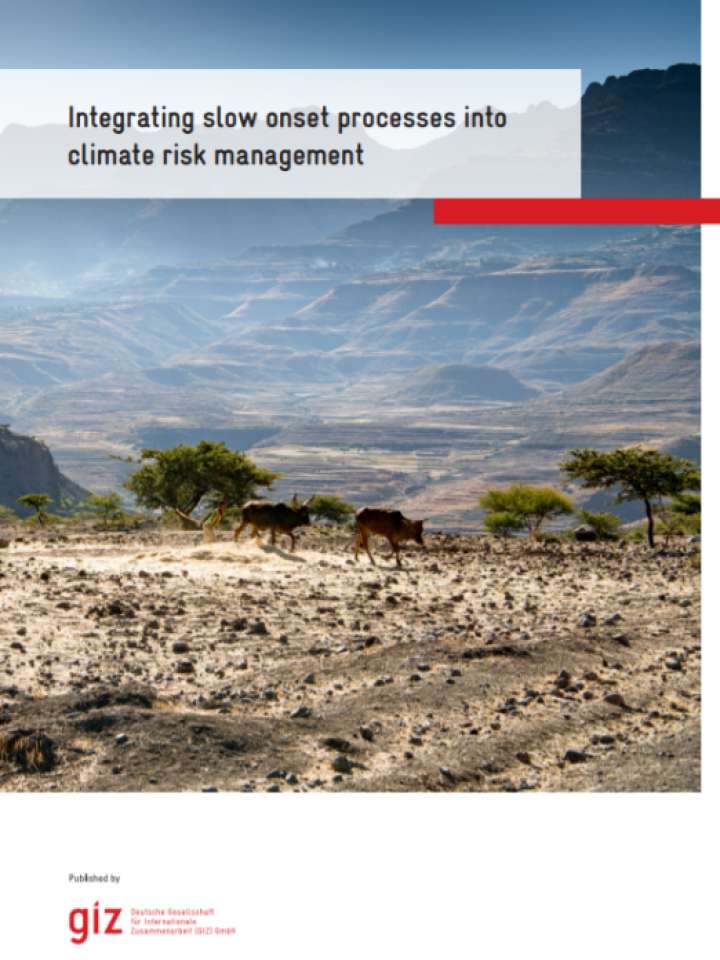Integrating slow onset processes into climate risk management
This working paper lays out definitions, key challenges, and opportunities for understanding risk and generating resilience to slow-onset processes (SOP) and related extreme weather events (EWE). While extreme weather events (EWE) have been given due prominence in risk management, SOPs such as sea level rise or desertification have been less well considered. It describes a climate risk management(CRM) framework developed for this purpose, and it sets out key areas for collaboration across research and development cooperation. CRM is comprehensive, integrative, and iterative by design. It can be used to help understand, assess, reduce, and/or address the diversity of risks posed by climate change, especially when planning or sustaining development progress.
The paper find that to address the challenges of indirect, complex, and long-term risk causation associated with SOP, a combination of methodological approaches is recommended. Generating evidence on the acceptability and effectiveness of CRM measures for SOP to fill the existing gap also requires an iterative framework based on continuous learning. Improved decision-making and governance related to SOP (and EWE) risks requires the assessment and recording of SOP-related losses and damages in global databases and their consideration for informing international agendas, and the mainstreaming of climate risks, including those arising in the context of SOP, into relevant processes and policies at national and sub-national levels, among other things. Finally, collaboration between research and development practitioners working on CRM is a vital step towards the integration of SOP and, eventually, towards increased resilience
Explore further
